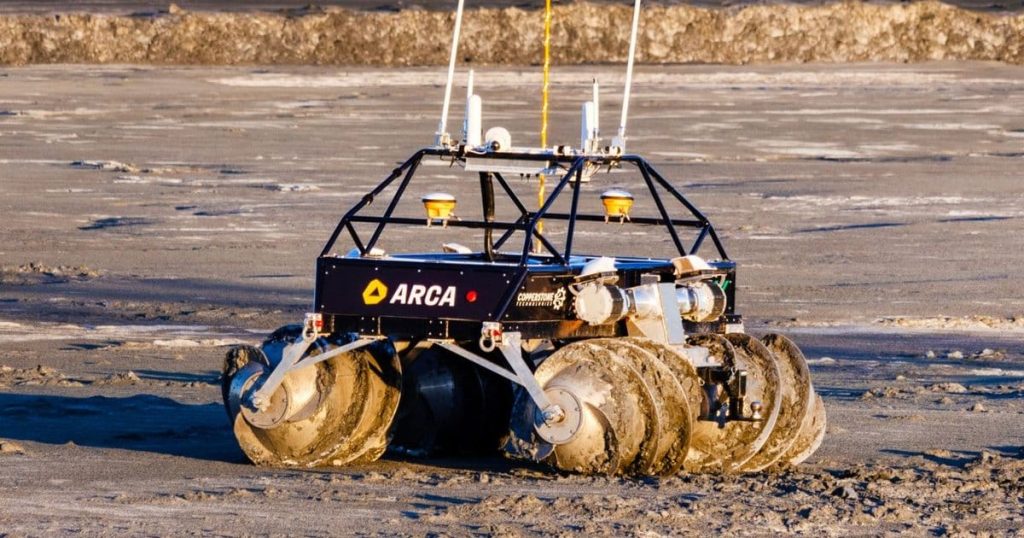Microsoft signs 10-year offtake with Arca for nearly 300,000 tonnes of durable carbon removal.
The deal advances industrial mineralization, a low-footprint pathway using mine waste to store CO₂ permanently.
Canada positions itself as a global hub for carbon removal innovation and industrial-scale deployment.
Arca Secures Landmark Carbon Removal Partnership
Vancouver-based Arca, a company specializing in industrial mineralization, has entered a long-term offtake agreement with Microsoft to deliver nearly 300,000 tonnes of durable carbon dioxide removal (CDR) over the next decade. The contract expands Microsoft’s growing portfolio of verified carbon removals and reinforces Canada’s emergence as a centre for climate technology innovation.
Arca’s process repurposes mining byproducts—such as tailings and waste rock—to accelerate a natural geochemical reaction known as carbon mineralization. The process permanently converts gaseous CO₂ into stable carbonate minerals, locking the carbon away for millennia.
“The next generation of clean growth will be built by Canada’s first-class innovation ecosystem – companies like Arca, which are turning Canadian ingenuity into global leadership,” said Canada’s Minister of Energy and Natural Resources, Tim Hodgson. “Carbon removal technologies are not only strategic tools we can use to tackle climate change, they create good jobs and position Canada at the forefront of the global opportunity of a low-carbon economy.”


Scaling Carbon Mineralization from Pilots to Industry
Arca completed its first full-scale demonstration project at an operational mine in 2025 and continues to expand its global portfolio of mineralization sites. The new Microsoft agreement provides long-term revenue certainty that can help scale Arca’s operations from pilot to million-tonne capacity.
“Arca was built on the foundation of more than 20 years of academic research, dozens of field trials and collaborations with more than 30 mining companies around the world,” said Dr. Greg Dipple, Arca’s co-founder and Head of Science.


Industrial mineralization offers several advantages over other carbon removal pathways. It leverages abundant industrial waste streams already exposed at the Earth’s surface, minimizes additional land and energy requirements, and delivers permanent storage outcomes that are easier to verify through measurement, reporting, and verification (MRV) frameworks.
The company also emphasizes local economic and environmental benefits. Converting mine waste into stable minerals not only reduces environmental risks but creates employment opportunities in host communities—aligning with the “just transition” principles shaping global climate policy.
RELATED ARTICLE: Microsoft Invests in Fortera to Scale Low-Carbon Cement Production
Microsoft Expands Long-Term Carbon Removal Portfolio
Microsoft’s agreement with Arca forms part of its broader goal to become carbon negative by 2030 and remove all its historical emissions by 2050. The company has increasingly diversified its CDR portfolio to include direct air capture, biochar, ocean-based removal, and now industrial mineralization.
“This offtake agreement diversifies Microsoft’s carbon removal portfolio into a pathway that combines scalability and permanence,” said Phil Goodman, Director of Microsoft’s Carbon Dioxide Removal Program. “Arca brings notable scientific expertise and has proven they can sequester carbon through their demonstration project, giving us confidence to enter into a multi-year agreement.”
The partnership reflects a broader trend in corporate climate finance: large-scale buyers seeking verified, durable carbon removal pathways as supply remains constrained. Independent validation and monitoring protocols are critical to ensure credibility and investor confidence in a growing but scrutinized market.
Industrial Mineralization’s Strategic Role in Global Climate Goals
Carbon mineralization is gaining attention as one of the most durable and verifiable forms of CO₂ storage. Unlike biological sequestration, which is vulnerable to fire and land-use change, mineralized carbon remains locked for geological timescales. According to Arca, billions of tonnes of suitable mineral waste already exist globally, offering a vast feedstock for expansion without competing for land or water resources.
“We have a unique opportunity to utilize one form of waste (mine tailings) to neutralize another (excess atmospheric CO₂),” said Arca CEO Paul Needham. “This agreement with Microsoft validates industrial mineralization as a viable pathway for durable carbon removal with the potential to scale and meaningfully contribute to global climate goals.”


As global markets move toward standardized carbon accounting under frameworks such as the Paris Agreement’s Article 6 and the Integrity Council for the Voluntary Carbon Market’s Core Carbon Principles, industrial mineralization projects like Arca’s could become a cornerstone of verified, permanent removals.
A Global Signal from Canada’s Climate Innovation Ecosystem
For Canada, the partnership reinforces its role as a leader in climate technology and resource innovation. By aligning mining expertise with climate priorities, it demonstrates how traditional industries can evolve into carbon management hubs.
For the global corporate sector, the Microsoft–Arca deal signals growing demand for scientifically rigorous, scalable carbon removal solutions capable of delivering durable climate impact and credible ESG outcomes.
As the race to net zero intensifies, industrial mineralization could shift from pilot-scale innovation to a key lever in global decarbonization strategy—linking environmental science, industrial infrastructure, and long-term carbon accountability in one of the most durable forms yet achieved.
Follow ESG News on LinkedIn

